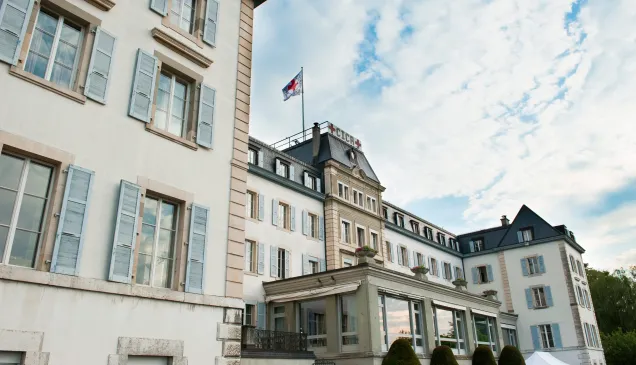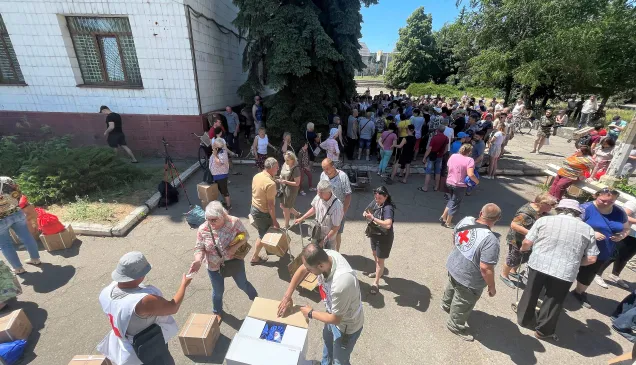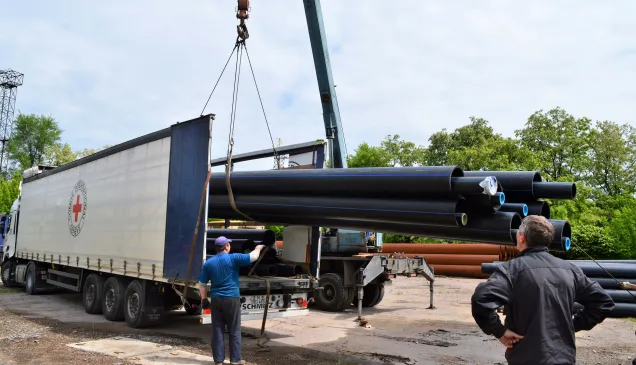Voices from Ukraine: Where homes are destroyed, and medical care is far away
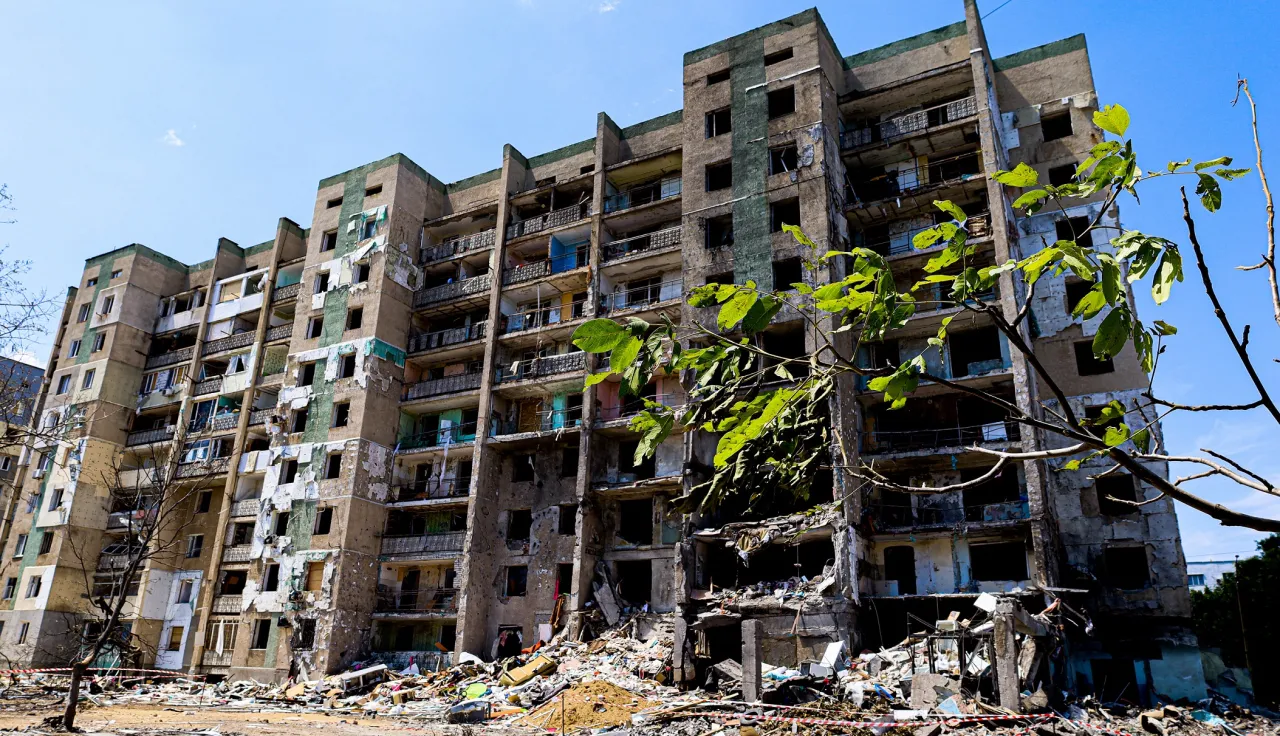
Over the past six months across Ukraine, thousands have lost family members, had to flee their homes or are in need or urgent medical care. Here are some of the people we've met.
All photos by Caitlin Kelly/ICRC
Vera
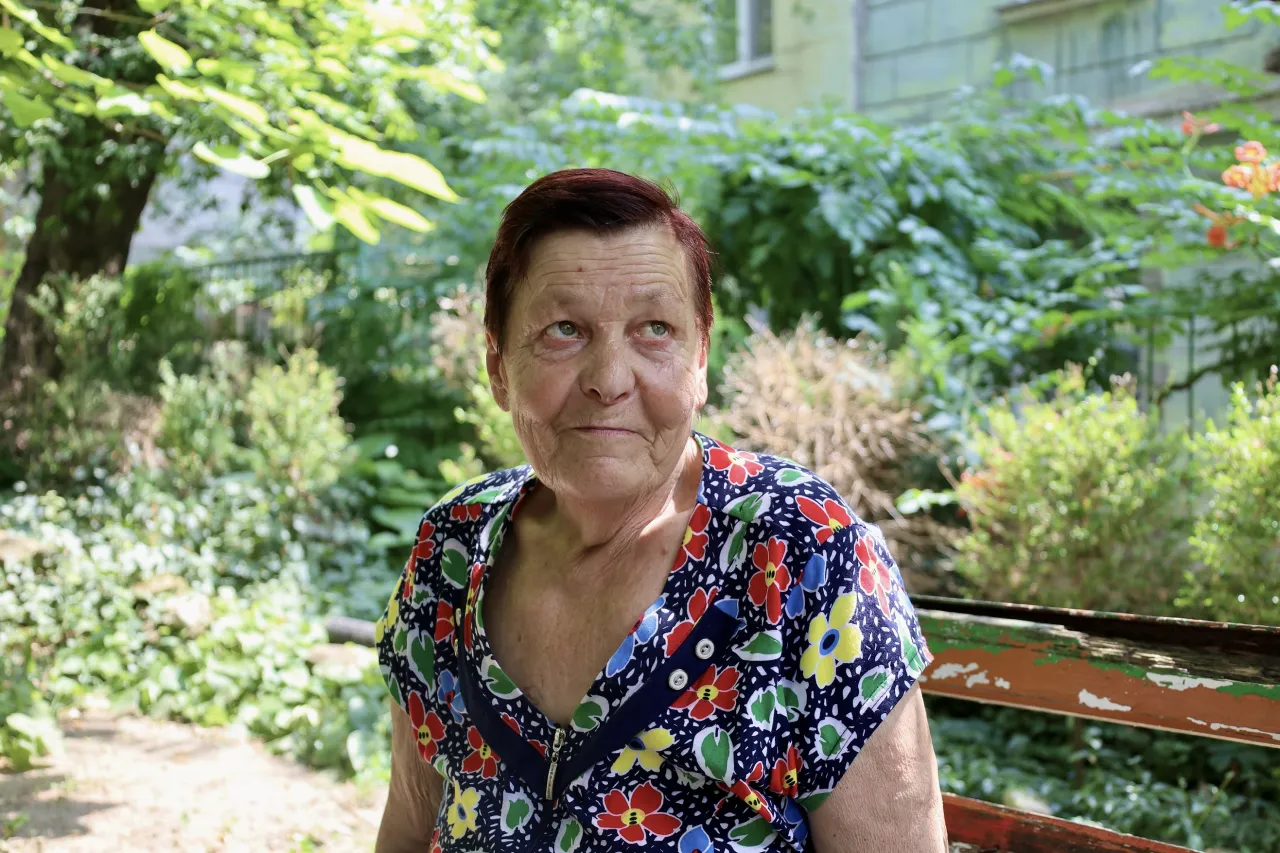
The road to Mykolaiv, a city in Ukraine two hours outside of Odesa, is eerily quiet. The sirens echo off the empty buildings, some with gaping holes.
Distant explosions rattle the air. People trudge across the city with empty plastic barrels in search of drinkable water. The city hasn't had running drinking water for months.
Vera hobbles out to meet us in a shady garden. Our conversation is punctuated by the sound of the traffic on the nearby bridge, bangs and bumps easily mistaken for the sound of shelling. She is staying with her сваха, a Ukrainian word that refers to her child's in-laws. We've heard frequently in the past few days, as families come together, a blending of resources, safety and love. Her piercing blue eyes dart as she recounts her story.
"There was no one. Everyone left," she says, describing her nearby village.
She was picking mushrooms with three other 'babushkas' when they came under fire. Shrapnel pierced her chest and arm.
After urgent surgery, she is now recovering in Mykolaiv. She laughs as she shows me how the doctor found the shrapnel by pulling a magnet across her chest. Her ability to see the ridiculous in the absurd makes me smile.
She says she feels safer in Mykolaiv, despite the constant sirens.
"I have nowhere else to stay. I can't go back because there is nothing to go back to. It's been completely razed to the ground."
Vera says she'll use the money from our cash grant program to buy basic things to wear. She was rushed to hospital and so left with nothing. She points to her only shoes, which are more like slippers.
Try to imagine living all your life in one place and then having to leave. And you don't know where to go. That's how I am feeling.
Vera
Tatyana
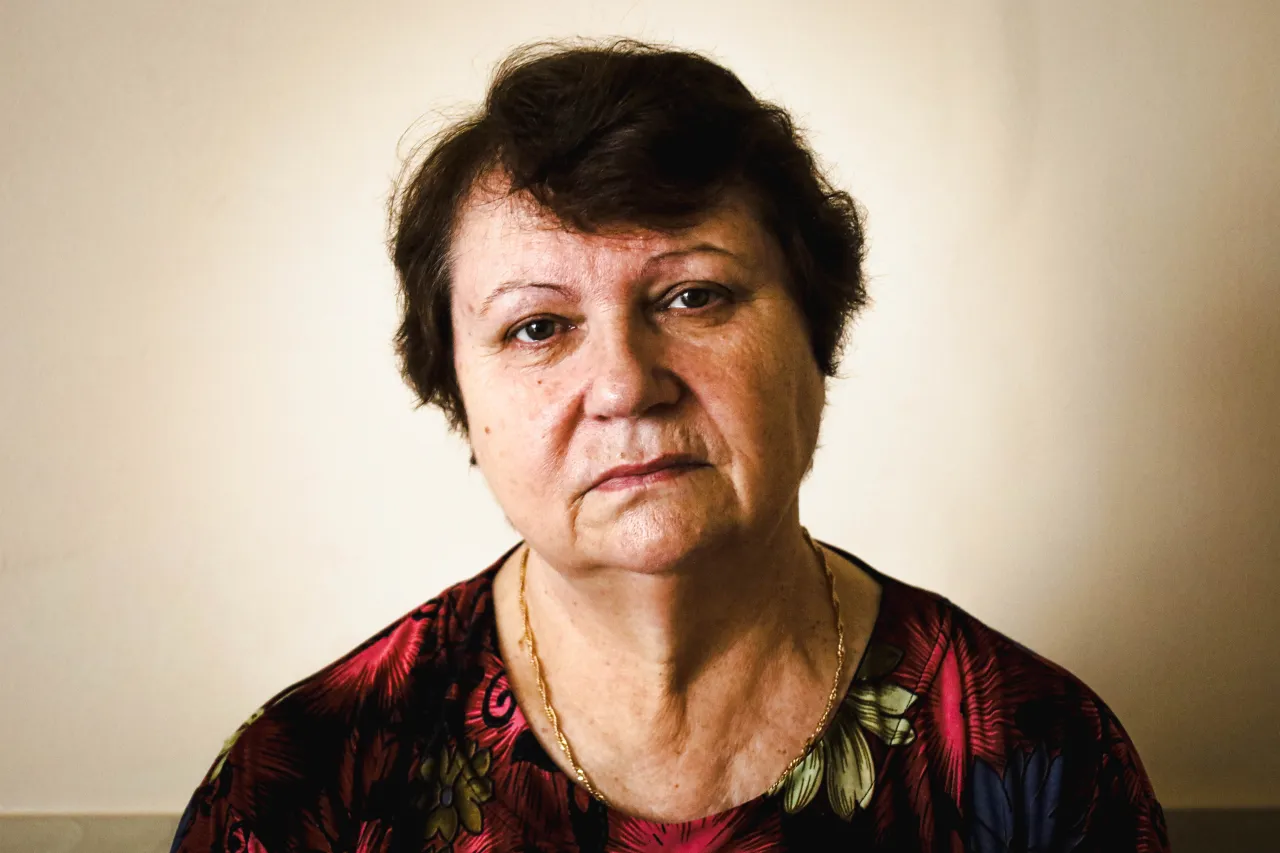
Tatyana and her family waited at the station for a train to take them to safety when two explosions rang out. At first, the blasts reminded her of fireworks.
Her grandchildren called out: "Granny, mummy isn't moving her head." Tatyana tried to help but couldn't move. She had been hit in the leg.
Her daughter's wounds were more severe. They included a severed artery, and she died instantly. She spent her last moments using her body to shelter her two children from harm.
Tatyana cries the whole time we speak at a hospital in Moldova but insists on telling her family's story. The muscles in her face are sunken, belying profound sadness. She frequently stared vacantly into the distance – trauma personified – as she tugged at a piece of string around her leg, a makeshift support for coping with her injuries.
Tatyana will now have surgery so that she can walk on her own again. Afterward, she plans to travel to Germany to reunite with her grandchildren.
I can't get my daughter back.
But I have to keep on living because I have four grandchildren. Two of them have lost both their mum and dad. I have to keep on living for them.
Tatyana
Ludmila

Sitting outside the hospital in Moldova, Ludmila pushes her facemask aside and lights up a cigarette, as if searching for a way to calm shattered nerves.
Inside the hospital she races around the corridors, waving each time she rolls by. Ludmila lost her right leg long before the most recent fighting, and the other is now at risk because of a deterioration in her health and a lack of access to health care.
We chat in her new home, a hospital room. Only a few hours before we speak, she learned that her street had been hit in the fighting, and I get the strong impression she believes her home has been damaged. Visibly upset, she obsessively checks her phone for updates, and I take the cue to quietly say goodbye.
Valentina
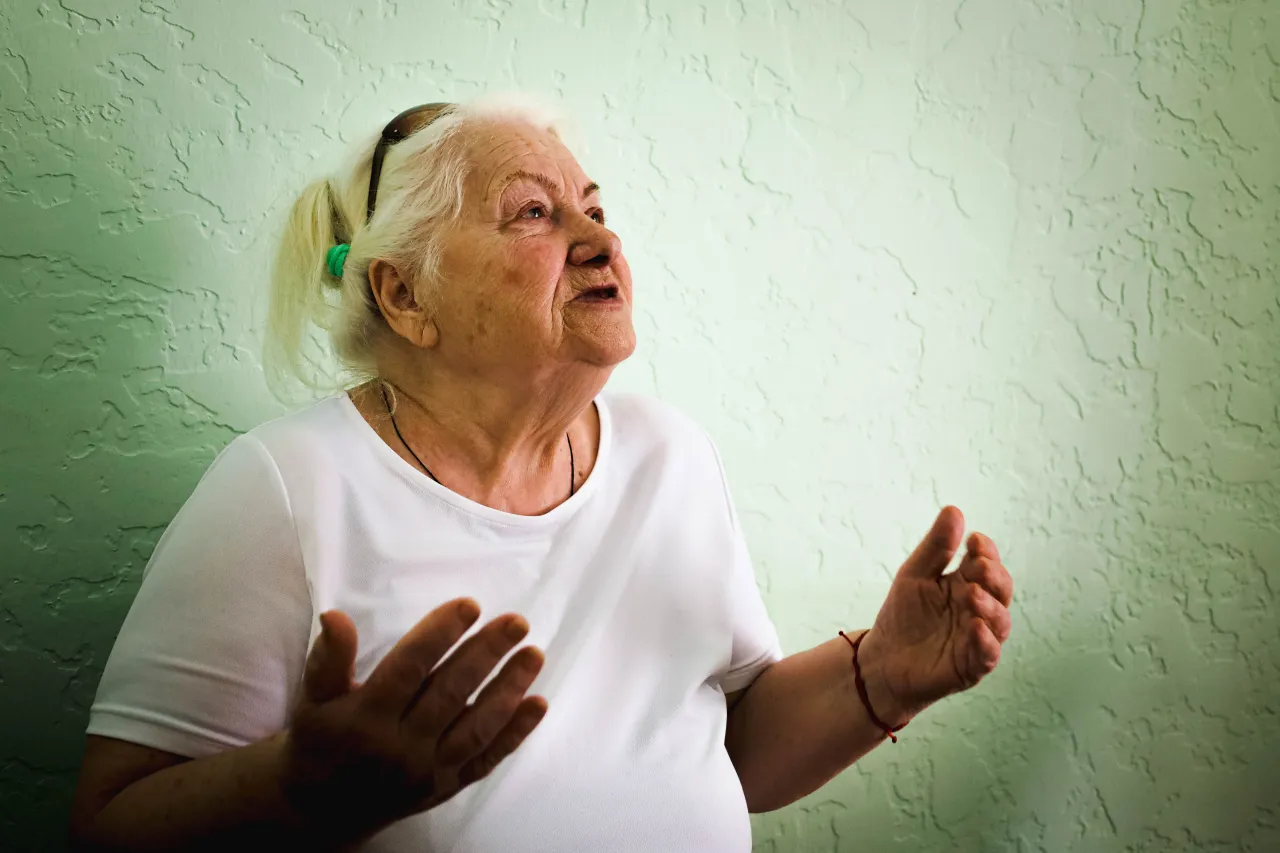
The damage at an apartment building in Serhiivka is immense -- half its side is missing. Children's toys litter the ground. Men throw the broken remains of past lives – furniture, plaster, old clothes -- over the side of the building. Amidst the debris, a book lies on its side, waiting for its reader to return. A bright red Santa hat sits atop the rubble. I wonder whether its owner lived to see another Christmas.
Valentina sits in an open area at the local sanatorium. A place for rest and relaxation now houses some of the survivors from the apartment building.
"I woke up around midnight with a bad feeling," she recalls.
One of the most expressive women I met, her arms move in circular motions as she describes the night of the blast. Her memory of the trauma is physical. She acts out the moment the windows shattered. Flying glass injured her legs and arms. She then suffered a stroke.
I was paralysed with fear - shaking and sweating.
Valentina
Hurrying back to her small room in the sanatorium, she shows us a Triptych that used to sit on her wall. It's one of the few belongings still intact. She speaks fondly of her neighbour, who died, a close friend, and says through tears she hopes to build a memorial for her.
She tells me she feels lighter after speaking to us. She wants the world to know her story.

